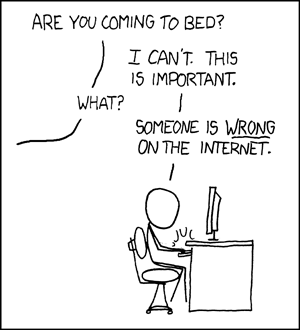- Joined
- Sep 15, 2011
- Messages
- 220
- Reaction score
- 14
I wanted to earn a doctorate in clinical or counseling psychology since I started my undergraduate studies, but I wound up going for a terminal master's degree in counseling because I decided I wanted to practice primarily.
Halfway through my master's program, I realized I had a gift for writing and lecturing (and I do enjoy research when I'm passionate about the topic), and I started to regret not applying to doctorate programs instead. Now, I want to let out a couple of things about my ultimate career hopes, and see if some folks might be able to point me in the right direction.
I ultimately want to do a combination of things (in order of most time spent):
1) Lecture and supervise at the graduate and/or post-graduate level with an emphasis on psychoanalytic theory and research.
2) Author psychoanalytic articles, some research studies that contribute to psychodynamic therapy process, and present at continuing education events and conferences.
3) Maintain a small private practice with a handful of patients.
Now, here is where I struggle...
If I don't pursue any further education and stop at my counseling license, I don't think I will have the credentials to pursue some of the above. I can't imagine an analytic institute, let alone a university, bringing in a master's-level counselor (not saying here the doctorate isn't without challenges either, just there is less of a credential barrier).
If I do go for a doctorate, I will be pushing 40 years old by the time I finish my post-doc, will have lost a significant amount of potentially earned income, and piled on additional debt. This would also be a rough option because I want to get married and have kids before I'm 40.
I have also been kicking myself in the behind for not earning an MSW instead. Had I gone that route, I might be able to better approximate some of my career aspirations from a different angle. Plus, clinically speaking, it seems MSW's are more sought after than master's-level mental health counselors (e.g. more room for independent practice in some states, medicare reimbursement, hospital appointments, good opportunities in administrative/business/leadership positions, etc...).
So, I guess I am really trying to figure out if I should go for a doctorate of some kind (maybe even something in social/personality psych), an MSW, or do something else. I do know I want to be a part of, and contribute literature to, the psychoanalytic community. That will probably also require some post-graduate training in a fellowship or extended program in addition to a different degree/license.
Thoughts?
Halfway through my master's program, I realized I had a gift for writing and lecturing (and I do enjoy research when I'm passionate about the topic), and I started to regret not applying to doctorate programs instead. Now, I want to let out a couple of things about my ultimate career hopes, and see if some folks might be able to point me in the right direction.
I ultimately want to do a combination of things (in order of most time spent):
1) Lecture and supervise at the graduate and/or post-graduate level with an emphasis on psychoanalytic theory and research.
2) Author psychoanalytic articles, some research studies that contribute to psychodynamic therapy process, and present at continuing education events and conferences.
3) Maintain a small private practice with a handful of patients.
Now, here is where I struggle...
If I don't pursue any further education and stop at my counseling license, I don't think I will have the credentials to pursue some of the above. I can't imagine an analytic institute, let alone a university, bringing in a master's-level counselor (not saying here the doctorate isn't without challenges either, just there is less of a credential barrier).
If I do go for a doctorate, I will be pushing 40 years old by the time I finish my post-doc, will have lost a significant amount of potentially earned income, and piled on additional debt. This would also be a rough option because I want to get married and have kids before I'm 40.
I have also been kicking myself in the behind for not earning an MSW instead. Had I gone that route, I might be able to better approximate some of my career aspirations from a different angle. Plus, clinically speaking, it seems MSW's are more sought after than master's-level mental health counselors (e.g. more room for independent practice in some states, medicare reimbursement, hospital appointments, good opportunities in administrative/business/leadership positions, etc...).
So, I guess I am really trying to figure out if I should go for a doctorate of some kind (maybe even something in social/personality psych), an MSW, or do something else. I do know I want to be a part of, and contribute literature to, the psychoanalytic community. That will probably also require some post-graduate training in a fellowship or extended program in addition to a different degree/license.
Thoughts?
Last edited:

